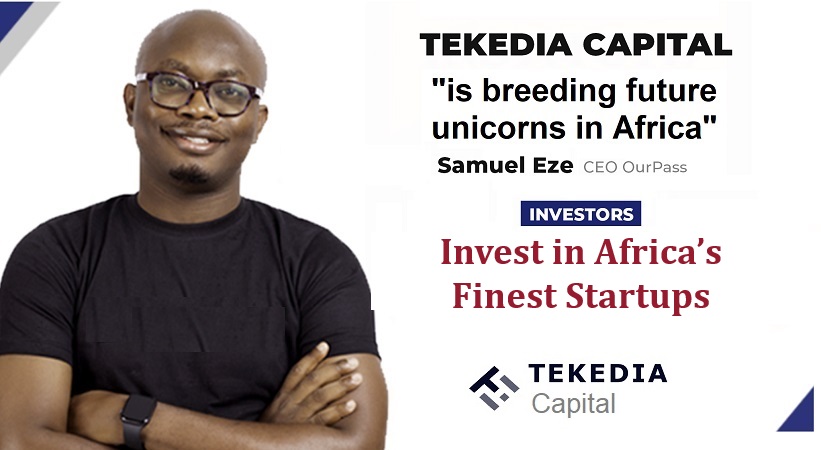News
Gibson Dunn Digital Assets Recent Updates – May 2024

June 3, 2024
We are pleased to provide you with the May 2024 edition of Gibson Dunn’s digital assets regular update. This update covers recent legal news regarding all types of digital assets, including cryptocurrencies, stablecoins, CBDCs, and NFTs, as well as other blockchain and Web3 technologies. Thank you for your interest.
ENFORCEMENT ACTIONS
UNITED STATES
- Uniswap Labs Calls SEC’s Legal Case “Weak and Wrong”
On May 21, Uniswap Labs responded to the SEC’s Wells notice issued against the firm. The SEC issues a Wells notice if, after the SEC’s Staff concludes an investigation, the Staff intends to recommend to the Commission that charges be brought. The Wells notice provides a prospective respondent the chance to present defenses concerning the investigation and to influence the Staff’s recommendation and the Commission’s view of the matter. Uniswap Labs called the SEC’s legal case “weak and wrong” and stated that the SEC’s “aggressive theories” are an attempt to stretch the SEC’s reach beyond its jurisdiction. Uniswap Labs argued that the SEC “should embrace open-source technology that improves outdated commercial and financial systems, instead of attempting to litigate it out of existence.” On April 10, the SEC issued a Wells notice against Uniswap Labs, in which the SEC alleged that Uniswap DEX acted as Uniswap Labs’ unregistered securities exchange and unregistered securities broker-dealer. Uniswap Labs’ filing says that “the SEC arguments rest on the false assumption that just about ‘all’ tokens are securities (which the SEC then refuses to register).” The Block; CoinDesk; Wells Response. - Two Arrested over Novel Scheme that attacked Ethereum Blockchain and Stole $25 Million in Cryptocurrency
On May 23, DOJ unsealed an indictment charging that two brothers attacked the Ethereum blockchain using a novel scheme that allegedly leveraged transaction integrity protocols to fraudulently obtain approximately $25 million worth of cryptocurrency within approximately 12 seconds. The prosecutors said the two defendants developed a scheme, dubbed the “Exploit,” through which they manipulated and tampered with the process and protocols that validate and add transactions to the Ethereum blockchain. In doing so, the DOJ alleged, they fraudulently gained access to and modified pending private transactions to obtain victims’ cryptocurrency. Press Release. - Federal Judge Dismisses Suit and Sanctions SEC Over Bad-Faith Conduct
On May 28, a federal judge dismissed the SEC’s lawsuit against crypto group Debt Box and ordered the SEC to pay over $1.8 million in attorney and receivership fees. The ruling follows a March decision finding the SEC engaged in bad-faith conduct over a temporary restraining order to freeze Debt Box’s assets. Law360; Order. - FTC Executive Receives 7.5-Year Prison Sentence
On May 28, a Manhattan federal judge imposed a 7.5-year prison sentence on crypto-finance expert and former FTX executive Ryan Salame for duping a bank to authorize $1.5 billion of illegal transfers and making fraudulent campaign contributions for the exchange’s convicted founder Sam Bankman-Fried. Law360. - BTC-e Operator Pleaded Guilty to Money Laundering Conspiracy
On May 3, one of the operators of the defunct crypto exchange BTC-e, Alexander Vinnik, pleaded guilty to conspiracy to commit money laundering from 2011 to 2017. The DOJ alleged that BTC-e acted as “one of the primary ways by which cyber criminals around the world transferred, laundered, and stored the criminal proceeds of their illegal activities” before it was shut down by law enforcement in or around July 2017. Allegedly, operating as an unlicensed money service business, the now defunct exchange reportedly processed over $9 billion-worth of transactions and served over one million users worldwide, including numerous customers in the United States. According to the DOJ, Vinnik operated BTC-e with the intent to promote these unlawful activities and was responsible for over $121 million in losses. Vinnik was first arrested in 2017, but faced a lengthy extradition process in which he spent time in Greece and France before being sent to the U.S. Press Release; CoinDesk. - Former Cred Executives Indicted on Wire Faud Conspiracy and Related Crimes
On May 3, a federal grand jury charged the former CEO, CFO, and CCO of Cred, LLC with wire fraud conspiracy and related crimes in connection with their purported roles in an alleged scheme to defraud customers and investors that caused losses of customer cryptocurrency assets with a market value that may have exceeded $780 million. Per the DOJ, through Cred’s lending program, called “CredEarn,” the defendants “lured” customers to make investments with promises of significant returns on cryptocurrency investments but failed to disclose that “virtually all the assets to pay the yield were generated by a single company whose business was to make unsecured micro-loans to Chinese gamers.” Cred filed for bankruptcy in November 2020, estimating its liabilities to be between $100 million and $500 million at the time. Press Release; CoinDesk.
INTERNATIONAL
- Hong Kong Regulator Says Worldcoin Operations Must Cease
On May 22, Hong Kong’s Privacy Commissioner for Personal Data (PCPD) “served an enforcement notice on Worldcoin Foundation, directing it to cease all operations of the Worldcoin project in Hong Kong in scanning and collecting iris and face images of members of the public using iris scanning devices.” The cryptocurrency project, which has received scrutiny from regulators globally, also was suspended in Kenya last year due to privacy concerns. CoinDesk; Cointelegraph; Reuters.
REGULATION AND LEGISLATION
UNITED STATES
- U.S. House Approves Crypto Bill FIT21 to Provide Regulatory Clarification for Digital Assets
On May 22, the U.S. House of Representatives passed the Financial Innovation and Technology for the 21st Century Act (FIT21), which was the first time that a significant crypto bill had cleared a chamber of Congress. The bill aims to provide regulatory clarity for digital assets. The legislation, which was largely driven by House Republicans, “would establish a regime to regulate the U.S. crypto markets, setting consumer protections, installing the Commodity Futures Trading Commission (CFTC) as a leading regulator of digital assets and the watchdog of the non-securities spot markets and it would more clearly define what makes a crypto token a security or a commodity.” While some crypto enthusiasts have backed the bill, the SEC warned that this bill could create new financial risks. Reuters; CoinDesk. - SEC Approves Eight Spot Ether ETFs from Leading Financial Firms
On May 23, the U.S. Securities and Exchange Commission (SEC) approved eight spot Ether exchange-traded funds (ETFs) from prominent financial firms. This move marks a significant regulatory milestone, demonstrating increased institutional acceptance and regulatory clarity for Ether-based financial products. The ETFs still need their S-1 registration statements to be finalized before trading can start. Further legislative clarity is still needed to define the regulatory jurisdiction between the SEC and CFTC over digital assets. The Block; Cointelegraph. - House Passes Bill to Block Fed-Issued Digital Dollar
The U.S.House of Representatives passed the CBDC Anti-Surveillance Act which would bar the Federal Reserve from issuing a so-called central bank digital currency, a state-issued dollar on the blockchain. Republicans argue that the measure is necessary to protect consumer privacy and express concern regarding the tokens’ traceability on the blockchain, which could be used by the government to track citizen purchases and limit or control their behavior. Law360. - United States CFTC Proposes to Ban Political Event Contracts
On May 10, the U.S. Commodity Futures Trading Commission (CFTC) proposed a formal rejection of events contracts that bet on the outcome of political activity. Three of the five commissioners approved this proposed rule, as they saw these contracts as “contrary to the public interest.” Prediction platforms allow users to buy contracts on the outcomes of actual events, including elections and policy developments. These platforms have been particularly popular in crypto circles. Contracts on political contests, awards contests, and the outcomes of games would be banned for U.S. regulated companies under the proposal. CoinDesk; The Block.
INTERNATIONAL
- UK Regulators Identified Crypto as One of the Biggest Money Laundering Risks in 2022-2023
In its annual supervision report on anti-money laundering and counter-terrorist financing (AML/CTF), the UK Treasury Department identified crypto firms, alongside retail banking, wholesale banking and wealth management as posing the greatest risk of being exploited for money laundering between 2022 and 2023. The conclusion from the report came from the risk assessments conducted by UK’s financial regulator, Financial Conduct Authority, on 238 firms. UK Treasury Report; CoinDesk. - In Taiwan, Proposed Anti-Money Laundering (AML) Changes Could Lead to Jail Time for Non-Compliance
On May 9, Taiwanese authorities announced that they sought to criminalize cryptocurrency firms that fail to abide by anti-money laundering (AML) rules. The Ministry of Justice’s proposed amendments to existing AML laws require domestic and overseas crypto firms seeking to operate in Taiwan to register for AML compliance. The penalty for failure to comply would be up to two years in prison. Currently, authorities can only impose administrative penalties on non-compliant crypto firms, but these new amendments would criminalize non-compliance. These proposed AML changes were to be sent to Taiwan’s national parliament for review. The Block. - Nigeria Reforms National Blockchain Policy Steering Committee
On May 21, Nigeria’s National Information Technology Development Agency (NITDA) announced that they were restructuring the National Blockchain Policy Steering Committee (NBPSC) in hopes of reassessing blockchain policy in Nigeria. The NBPSC was made up of members from government agencies, institutions, the private sector, academia, and the blockchain industry. The director-general of NITDA believed that the NBPSC’s reform would bring together “a fresh wave of experienced professionals and leading minds.” According to the NITDA, this reform is an effort would help “incorporate new emerging technologies and economic realities” in Nigeria. Cointelegraph. - Ramp Network, Crypto Infrastructure Firm, Secures Ireland Registration
On May 23, Ramp Network, a U.K.-based crypto infrastructure firm, secured Virtual Asset Service Provider (VASP) registration in Ireland and plans to establish its European headquarters there. This registration will enable users to exchange fiat for over 100 crypto assets. Ireland—an EU-member—would provide a pathway for Ramp to become a licensed Crypto Asset Service Provider (CASP) under the EU’s Markets in Crypto Assets Regulation (MiCA). This move by Ramp is another in recent fintech movement to Ireland, following other exchanges that have secured licenses and set up operations in the country. CoinDesk.
CIVIL LITIGATION
UNITED STATES
- New York Attorney General Announces $2 Billion Settlement to End Litigation Against Genesis
In a May 20 notice, the New York Attorney General announced a $2 billion settlement with cryptocurrency firm Genesis to compensate allegedly defrauded investors. The Attorney General had claimed that Genesis had been “lying and cheating investors,” who sent more than $1.1 billion to Genesis through the Gemini Earn program. The settlement bans Genesis from operating in New York and requires the settlement funds to be returned to Genesis investors. Cointelegraph; The Block. - U.S. Supreme Court Allows Coinbase User Class Action to Proceed in Federal Court
On May 23, the U.S. Supreme Court issued a unanimous opinion in Coinbase Inc. v. Suski, ruling that a putative class-action lawsuit brought by Coinbase users should remain in federal courts rather than be sent to arbitration. The Court held that where “parties have agreed to two contracts – one sending arbitrability disputes to arbitration and the other either explicitly or implicitly sending arbitrability disputes to the courts—a court must decide which contract governs,” rather than an arbitrator. Law360; Opinion.
SPEAKER’S CORNER
UNITED STATES
- Sens. Elizabeth Warren and Angus King Warn National Security Chiefs About Iranian Crypto Mining
In an open letter to Secretary of Defense Lloyd Austin, Secretary of the Treasury Janet Yellen and National Security Advisory Jake Sullivan, Senators Elizabeth Warren and Angus King warned about Iran’s “increasingly lucrative” relationship with crypto mining which “poses a direct threat to our national security.” The letter outlined Iran’s status as a leading jurisdiction for bitcoin mining and how its central bank channels cryptocurrency to fund the economy. “Cryptomining has become such a big industry in Iran that it has strained the country’s energy grid, leading the Iranian government to temporarily suspend cryptomining several times after it was blamed for massive blackouts.” Letter; CoinDesk. - Former SEC Commissioner Says SEC Has Taken “Too Expansive” a View on Digital Assets
At the May 9 TokenizeThis 2024 conference, Troy Paredes, who served as an SEC commissioner from 2008 to 2013, suggested that the SEC may be overreaching into the digital assets market. Paredes said that the SEC “has taken a very expansive view as to what constitutes a security.” Because “if it’s not a security, then it’s outside the scope of the federal securities laws in the SEC’s jurisdiction.” Cointelegraph. - CFTC Commissioner Discusses Turf War with SEC Over Crypto Regulation
In an interview, CFTC Commissioner Summer Mersinger discussed the turf war between the SEC and the CFTC, as both authorities seem to claim that they have authority over the crypto industry. Mersinger blamed the tension amongst the agencies mainly on a lack of clarity regarding each agency’s authority. Mersinger asserted that current statutory authority over crypto, as practiced through regulatory enforcement actions, was not sufficient to handle the evolving industry. Mersinger opined that the only way to bring clarity to the crypto industry would be to have a bill come out of Congress that said, “here’s how to handle cryptocurrencies.” Mersinger also indicated that the SEC and the CFTC needed to come up with some joint rulemaking around the crypto industry, and pointed to how Dodd Frank was a stellar example of joint rulemaking. CoinDesk. - SEC Chair Gary Gensler Opposes U.S. Crypto Bill FIT21
On May 22, SEC Chair Gary Gensler expressed that existing laws give the SEC enough authority to go against other U.S. regulatory agencies, including the White House and its Treasury Department, to regulate the crypto industry. In a statement issued against crypto bill FIT21, Gensler said that crypto firms had shown an “unwillingness to comply with applicable laws and regulations for more than a decade, variously arguing that the laws do not apply to them or that a new set of rules should be created and retroactively applied to them to excuse their past conduct.” Rep. French Hill (R-Ark.) stated that Gensler’s opinion on FIT21 was “isolated from other regulatory leaders.” CoinDesk; SEC Statement.
OTHER NOTABLE NEWS
- Tether Enters Transaction Monitoring Partnership with Chainalysis
Tether, issuer of the largest stablecoin USDT, said on May 2 that it had teamed up with the blockchain data firm Chainalysis to monitor transactions with its tokens on secondary markets. According to the press release, the monitoring system included international sanctions compliance and illicit transfer detection that could be associated with activities like terrorist financing, and would help Tether identify crypto wallets that could “pose risks or may be associated with illicit and/or sanctioned addresses.” Tether CEO Paolo Ardoino said that this collaboration with Chainalysis “marks a pivotal step in our ongoing commitment to establishing transparency and security within the cryptocurrency industry.” Press Release; CoinDesk. - CME Group Plans to Launch Spot Bitcoin Trading
On May 16, Financial Times reported that the Chicago-based CME Group, the world’s largest futures exchange, planned to offer spot bitcoin trading to clients. Citing people “with direct knowledge of the talk,” Financial Times reported that CME had been holding discussions with traders who wanted to buy and sell bitcoin on a regulated marketplace. Introducing spot bitcoin trading on CME, which already hosted trading in bitcoin futures, would allow investors more easily to place so-called basis trades. CME’s potential entrance could mean that the large, regulated exchanges were becoming more comfortable with the infrastructure for trading digital assets, such as keeping coins safely secured. Financial Times; CoinDesk. - Bitcoin and Ethereum ETPs to Debut on London Stock Exchange
On May 22, the United Kingdom’s Financial Conduct Authority (FCA) approved Bitcoin and Ethereum-based exchange-traded products (ETPs) to be traded on the London Stock Exchange. However, only professional and institutional investors would be able to access these ETPs due to the 2021 ban on retail customers trading crypto derivatives. To get approval from the FCA, a crypto ETP should only be denominated in Bitcoin or Ethereum, be physically backed and non-leveraged, issuers must hold the underlying assets in cold storage, and the issuers must partner with an anti-money laundering licensed custodian in the United States, the United Kingdom, or the European Union. Cointelegraph. - Stand With Crypto Alliance Launches PAC for U.S. Elections
On May 10, the Stand with Crypto Alliance, formed in 2023, launched a new affiliated federal political action committee (PAC) to raise money to support politicians who are crypto-friendly. According to its website, the Stand with Crypto Alliance is a 501(c)(4) nonprofit with the aim of advocating for “clear, common-sense regulations in the crypto industry.” Crypto has become a greater part of the campaign trail, as presidential candidates have voiced their stances in hopes of swinging voters. Stand with Crypto’s PAC seeks to foster a grassroots movement, with donations limited to $5,000 from each of its members. Stand With Crypto; X (Twitter) Announcement; The Block. - Hong Kong Issuer Looks to Make Bitcoin ETF Available to Mainland China
On May 9, the CEO of Harvest, an issuer of a spot Bitcoin exchange-traded fund (ETF) in Hong Kong, announced at the Bitcoin Asia conference that Harvest was looking to make Bitcoin ETF accessible to investors in mainland China. The CEO is considering various options that would allow mainland Chinese investors to purchase Harvest Bitcoin and Ether ETFs by offering Harvest’s products through Hong Kong’s ETF Connect framework. ETF Connect, which launched in May 2022, gives mainland investors access to a range of selected ETFs listed in Hong Kong. On May 9, the South China Morning Post reported that as long as “everything goes smooth and well” in the next two years, Harvest will not rule out applying for its ETFs to be included in ETF Connect. Approval remains questionable, as the Chinese government has historically maintained a restrictive approach towards cryptocurrencies such as Bitcoin. Nevertheless, ETFs were a major topic at the Bitcoin Asia conference in Hong Kong. Cointelegraph; The Block. - Colombian President Allegedly Accepted $500,000 Illicit Crypto Donation
In early May, local media reported that Colombia’s President, Gustavo Petro, allegedly accepted upwards of $500,000 in digital tokens from a local crypto project. Colombia-based cryptocurrency project Daily COP reportedly made this illicit donation to Petro’s campaign in 2022. When Daily COP’s co-founder and Petro’s then-campaign manager discussed the donation, the parties purportedly aimed to form some sort of “joint venture [or] alliance with the government.” The Block. - Donald Trump Is First Major Party Candidate to Accept Crypto Donations
On May 21, Donald Trump became the first major party candidate to accept crypto donations. The announcement came just weeks after Trump declared himself as crypto’s candidate at a Mar-a-Lago gala. Although Trump has not proposed any concrete crypto policies, supporters welcomed the news as a win for crypto, particularly since Joe Biden’s administration has historically taken a broadly anti-crypto stance. Robert F. Kennedy Jr., who is running as an independent, has accepted crypto donations for months. CoinDesk. - First UK Crypto ETPs Launched on May 28
On May 28, the first bitcoin exchange-traded products (ETPs) debuted trading on the London Stock Exchange after receiving approval from the UK’s Financial Conduct Authority. The sponsoring asset managers were given the green light by the FCA to list ETPs investing in “physical” spot bitcoin and ether. The ETPs, however, will only be available to professional investors because the FCA has ruled that “crypto derivatives are ill-suited for retail consumers due to the harm they pose.” Financial Times.
FinTech and Digital Assets Group Leaders / Members:
FinTech and Digital Assets Group:
Ashlie Beringer, Palo Alto (+1 650.849.5327, [email protected])
Michael D. Bopp, Washington, D.C. (+1 202.955.8256, [email protected]
Stephanie L. Brooker, Washington, D.C. (+1 202.887.3502, [email protected])
Jason J. Cabral, New York (+1 212.351.6267, [email protected])
Ella Alves Capone, Washington, D.C. (+1 202.887.3511, [email protected])
M. Kendall Day, Washington, D.C. (+1 202.955.8220, [email protected])
Michael J. Desmond, Los Angeles/Washington, D.C. (+1 213.229.7531, [email protected])
Sébastien Evrard, Hong Kong (+852 2214 3798, [email protected])
William R. Hallatt, Hong Kong (+852 2214 3836, [email protected])
Martin A. Hewett, Washington, D.C. (+1 202.955.8207, [email protected])
Michelle M. Kirschner, London (+44 (0)20 7071.4212, [email protected])
Stewart McDowell, San Francisco (+1 415.393.8322, [email protected])
Mark K. Schonfeld, New York (+1 212.351.2433, [email protected])
Orin Snyder, New York (+1 212.351.2400, [email protected])
Ro Spaziani, New York (+1 212.351.6255, [email protected])
Jeffrey L. Steiner, Washington, D.C. (+1 202.887.3632, [email protected])
Eric D. Vandevelde, Los Angeles (+1 213.229.7186, [email protected])
Benjamin Wagner, Palo Alto (+1 650.849.5395, [email protected])
Sara K. Weed, Washington, D.C. (+1 202.955.8507, [email protected])
© 2024 Gibson, Dunn & Crutcher LLP. All rights reserved. For contact and other information, please visit us at www.gibsondunn.com.
Attorney Advertising: These materials were prepared for general informational purposes only based on information available at the time of publication and are not intended as, do not constitute, and should not be relied upon as, legal advice or a legal opinion on any specific facts or circumstances. Gibson Dunn (and its affiliates, attorneys, and employees) shall not have any liability in connection with any use of these materials. The sharing of these materials does not establish an attorney-client relationship with the recipient and should not be relied upon as an alternative for advice from qualified counsel. Please note that facts and circumstances may vary, and prior results do not guarantee a similar outcome.
News
US Cryptocurrency Rules Delayed by ‘Never-Ending’ Lawsuits

Ripple CEO says cryptocurrency industry still seeking regulatory clarity from US
Speaking to Bloomberg News on Wednesday (July 17), Author: Brad Garlinghouse he said America is behind behind other countries which have already adopted cryptocurrency regulations.
“What we’re seeing, where it’s the UK, Japan, Singapore… even the European Union, more than two dozen countries have come together to provide a framework for cryptocurrency regulation,” Garlinghouse said.
“It’s frustrating that we as a country can’t get that regulatory framework in place. And instead, we have this never-ending lawsuit coming from the SEC that doesn’t really address the problem.”
Ripple has been the target of some of these legal disputes. Securities and Exchange Commission (SEC) sued the company in 2020, accusing it of conducting a $1.3 billion operation offering of unregistered securities tied to its XRP token.
However, last year a judge ruled that only Ripple’s institutional sales of XRP, not retail sales, violated the law, a decision widely seen as a victory for the cryptocurrency industry.
As PYMNTS noted at the time, that ruling has “far-reaching repercussions impact across the digital asset ecosystem, which has long maintained that its tokens do not represent securities contracts.”
However, Garlinghouse told Bloomberg on Wednesday that the company cannot wage multimillion-dollar legal battles over each token.
He spoke to the news agency from the Republican National Convention in Milwaukee, where the party is backing the candidacies of former President Donald Trump and Ohio Sen. J.D. Vance, both of whom are considered pro-cryptocurrency.
But Garlinghouse argued that cryptocurrencies “should not be a partisan issue,” and noted that he had recently attended a conference in Washington that included Democrats, including White House officials.
“I think they were there, listening to the industry… it was refreshing to start having that conversation,” she said.
President Joe Biden earlier this year he vetoed a measure which would have ended the SEC’s special rules for crypto-asset custodians. This legislation was supported by both the digital asset industry and the banking industry.
Ripple early this year donated $25 million to the cryptocurrency industry’s super PAC Fair Smoothiewith Garlinghouse stating at the time that such donations would continue every year, as long as the industry had its detractors.
Second Open SecretsWhich monitor spending For campaigns, the PAC has spent $13.4 million this year, much of it to help defeat Rep. Katie Porter’s (D-Calif.) U.S. Senate campaign.
News
The Future of Cybersecurity in the Cryptocurrency Industry

The cryptocurrency space has had a tumultuous journey, with its fair share of ups and downs. As we look to the future, one area that remains a constant focus is cybersecurity. The digital nature of cryptocurrencies makes them inherently vulnerable to cyber threats, and as the industry evolves, so does the landscape of potential risks.
In 2022, the cryptocurrency market faced significant challenges, with over $2 trillion in market value lost. This event served as a wake-up call for the industry, highlighting the need for robust cybersecurity measures. The future of cryptocurrency security is expected to see a shift towards more regulated and established institutions taking the reins of crypto technology and blockchain infrastructure.
The decentralized nature of cryptocurrencies offers numerous benefits, such as transparency and financial inclusion. However, it also introduces unique security challenges. The risk landscape is filled with threats such as hacking, phishing, ransomware attacks, malware, and social engineering. These threats not only lead to financial losses, but also damage the reputation and trust within the cryptocurrency ecosystem.
Mini-MBA Tekedia edition 15 ((September 9 – December 7, 2024) started recordings; Register today for discounts reserved for early bird customers.
Tekedia AI in Business Masterclass Opens registrations Here.
Join the Tekedia Capital Syndicate and IInvest in Africa’s best startups Here.
The decentralized nature of cryptocurrencies offers many benefits, but it also presents unique security challenges. Cyber risks such as hacking, phishing, and ransomware pose threats to the integrity of digital assets. The infrastructure that supports cryptocurrencies is not immune to vulnerabilities, including smart contract flaws and exchange hacks.
To address these vulnerabilities, the infrastructure that supports cryptocurrencies must be strengthened. Smart contract vulnerabilities, exchange hacks, wallet breaches, and flaws in the underlying blockchain technology are significant concerns that must be addressed to ensure the security and integrity of digital assets.
As cybercriminal tactics and techniques become more sophisticated, the cryptocurrency industry must stay ahead of the curve. The future will likely see more targeted attacks, exploiting weaknesses in infrastructure, networks, and human factors. This requires a proactive and multifaceted approach to cybersecurity.
To mitigate these risks, several measures must be adopted:
Strengthening security measures: Developers, exchanges, and wallet providers must improve security protocols, use strong encryption, implement multi-factor authentication, and conduct regular security audits.
Education and awareness: Users should be educated on best practices for protecting their digital assets, including using strong passwords, recognizing phishing attempts, and using hardware wallets for secure storage.
Looking ahead, the cryptocurrency industry is expected to see an increased focus on robust security measures. Blockchain projects and exchanges are likely to invest in advanced encryption techniques and decentralized storage solutions to protect user assets. The future impact of cyber risk on cryptocurrencies will depend on the collective efforts of stakeholders to address vulnerabilities and strengthen security measures.
Collective efforts by stakeholders in the cryptocurrency space are crucial to address vulnerabilities and strengthen security measures. While challenges persist, advances in cybersecurity technologies and practices offer hope for a more secure and resilient cryptocurrency ecosystem.
The future of cybersecurity in the cryptocurrency industry depends on finding a balance between innovation and regulation. It requires a collaborative effort from all parties involved, from developers to end users, to create a secure environment that fosters trust and growth in the industry. As we move forward, it is critical that lessons learned from past events guide the development of stronger security measures, ensuring the longevity and stability of cryptocurrencies as a vital part of the modern economic toolkit.
Like this:
Like Loading…
News
Bullish XRP and RLBK price predictions rise, outpacing the broader cryptocurrency market, prompting Shiba Inu holders to switch!

Bitcoin’s one-week surge from $60,000 has pushed other cryptocurrencies into an uptrend. However, for many altcoins, this trend has been temporary. Altcoins such as XRP and Shiba Inu (SHIB) have experienced price drops. However, Rollblock, a new altcoin on the Ethereum blockchain, has thrived during this period, attracting thousands of investors looking for long-term growth.
XRP’s Nearly 30% Growth Over Last Week Drops as Selling Pressure Increases
XRP is seeing further price decline as Ripple investors withdraw their profits from the token. The surge in XRP’s price to $0.64 in the past week has provided investors with a perfect opportunity to increase their returns in the short term. With the ongoing sell-off in XRP, XRP has jumped over 8% in the past day and is now trading at $0.59. However, analysts tracking XRP indicators predict that XRP could still extend its gains by over 30% in the coming weeks.
Shiba Inu (SHIB) marks its third consecutive day of losses
Shiba Inu (SHIB) is in a period of adjustment after a week of strong gains. In the last 24 hours, SHIB has seen a jump of over 7%, reflecting a natural market fluctuation. Analysts are observing a death cross on the Shiba Inu chart, which historically signals the potential for future opportunities as the market stabilizes. As investors explore new possibilities, some are diversifying into promising altcoins like Rollblock (RBLK) to strategically rebalance their portfolios and capitalize on the emerging trend.
Rollblock (RBLK) Up Another 7% as New Investors Join Pre-Sale
Rollblock (RBLK) has taken the cryptocurrency market by storm, having attracted investors from more popular altcoins like Shiba Inu (SHIB) and XRP. Rollblock’s growth is attributed to its utility in the $450 billion global gaming industry.
Rollblock aims to use blockchain technology to bridge the gap between centralized and decentralized gambling. With blockchain technology, Rollblock secures every transaction in its online casino, providing transparency and convenience to millions of players who are uncomfortable placing bets on other iGaming platforms.
This innovative use of blockchain technology in the industry has grown Rollblock to over 4,000 new users in less than two months. With plans to add sports betting, this number is expected to grow exponentially in Q3.
Rollblock uses a revenue sharing model that splits up to 30% of its casino’s weekly profits with token holders. This happens after Rollblock buys back $RBLK from the open market and uses half of it for rewards. The other half is burned to increase the price of $RBLK.
Rollblock price has seen four increases in the past month with $RBLK tokens now selling for $0.017. Analysts predict that at the current growth rate, Rollblock could increase by over 800% before the presale ends. For investors looking for a long-term token with growth potential, phase four is the best time to buy Rollblock before its price skyrockets!
Discover the exciting Rollblock (RBLK) pre-sale opportunities now!
Website:https://Rollblockpresale.io/
Social: https://linktr.ee/Rollblockcasino
No spam, no lies, just insights. You can unsubscribe at any time.
News
Texas Crypto Miners Turn to AI as Crypto Declines

As cryptocurrency mining becomes less profitable, Texas cryptocurrency mining companies are switching to supporting artificial intelligence companies.
Bitcoin miners, with their sprawling data centers and access to significant energy resources, are ideally suited for computationally intensive AI operations, and as cryptocurrency mining becomes less profitable, companies see this shift as a logical answer to their problems.
On Thursday, Houston-based Lancium and Denver-based Crusoe Energy Systems announced a multibillion-dollar deal to build a 200-megawatt data center near the West Texas city of Abilene to support advanced artificial intelligence applications such as medical research and aircraft design, CNBC reported. The plant represents the first phase of a larger 1.2 gigawatt project.
Lancium and Crusoe’s move into AI mirrors a broader trend among bitcoin miners. The combined market capitalization of the top U.S.-listed bitcoin miners hit a record $22.8 billion in June. Companies like Bit Digital and Hut 8 are diversifying into AI, with Bit Digital securing a $92 million annual revenue deal to supply Nvidia GPUs and Hut 8 raising $150 million to expand its AI data center.
But the growing popularity of these operations also presents challenges, particularly for the Texas power grid. Last month, the Electric Reliability Council of Texas announced that the state is expected to nearly double its energy production by 2030 to meet the high energy demands of data centers and cryptocurrency operations.
Lieutenant Governor Dan Patrick expressed concern about the projections.
“Cryptocurrency miners and data centers will account for more than 50% of the additional growth. We need to take a close look at these two sectors,” He wrote on Twitter/X. “They produce very few jobs compared to the incredible demands they place on our network. Cryptocurrency miners could actually make more money selling electricity to the network than they do from their cryptocurrency mining operations.”
Analysts predict significant growth in data center power capacity, which is expected to account for up to 9% of U.S. electricity consumption by 2030.
The operations also pose challenges for nearby cities. Earlier this month, TIME reported that a crypto-mining facility was seriously compromising the health of residents in the city of Granbury. TIME reported more than 40 people with serious health problems, including cardiovascular disease, high blood pressure and hearing loss. At least 10 of the residents needed to go to the emergency room or an urgent care facility.
The disturbances were caused by the extreme noise generated by the crypto-mining facility’s fans, which are used to keep the machines cool. While the proposed data center in Abilene would use liquid cooling systems, it’s still unclear whether the facility’s operations would pose a health risk to local residents.
-

 Nfts1 year ago
Nfts1 year agoShardLab Launches ZK-Based Tool for Digital Identity and NFT Vouchers
-

 News1 year ago
News1 year agoWallet recovery firms are abuzz as stranded cryptocurrency investors panic in the bitcoin boom
-

 Bitcoin1 year ago
Bitcoin1 year agoBitcoin, Ethereum, Solana and Cryptocurrency Markets Look Ready to ‘Send’ as Stars Align, According to Investor Chris Burniske
-

 Altcoins1 year ago
Altcoins1 year agoThree Altcoins Poised for Significant Growth in 2024: ETFS, OP, BLAST
-

 Altcoins1 year ago
Altcoins1 year agoAccumulate these altcoins now for maximum gains
-

 Nfts1 year ago
Nfts1 year agoOG Crypto Artist Trevor Jones Unveils Groundbreaking Collection of Ordinals | NFT CULTURE | NFT News | Web3 Culture
-

 Bitcoin1 year ago
Bitcoin1 year agoBillionaires are selling Nvidia stock and buying an index fund that could rise as much as 5,655%, according to some Wall Street analysts
-

 Videos9 months ago
Videos9 months agoKamala just won the boner! [Bad For Crypto]
-

 Videos1 year ago
Videos1 year agoLIVE FOMC 🚨 Could be CATASTROPHIC for Altcoins!
-

 News1 year ago
News1 year agoA Guide for Newcomers & Beginners – Forbes Advisor
-

 Videos1 year ago
Videos1 year agoAttention: a historically significant BITCOIN signal has just appeared!
-

 Videos1 year ago
Videos1 year agoSTOCK MARKET FUD! ⚠️ [Why This Is GREAT For Bitcoin Traders!]







